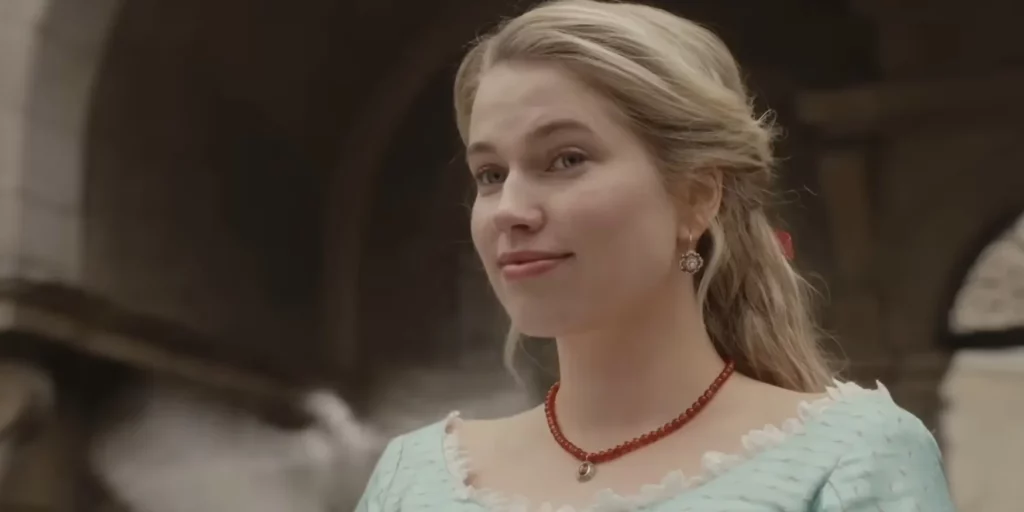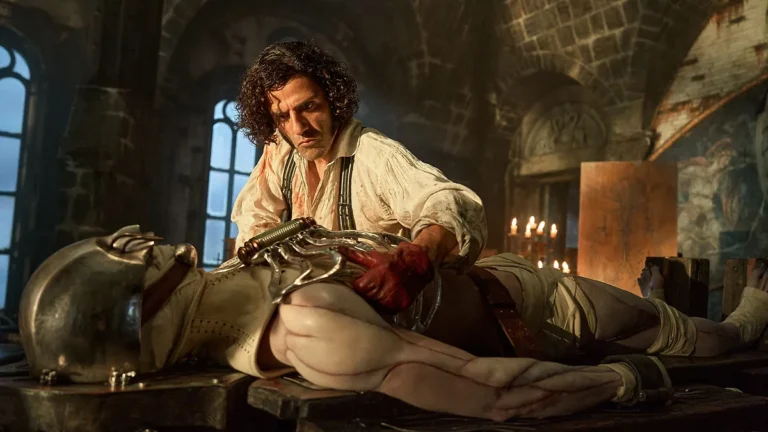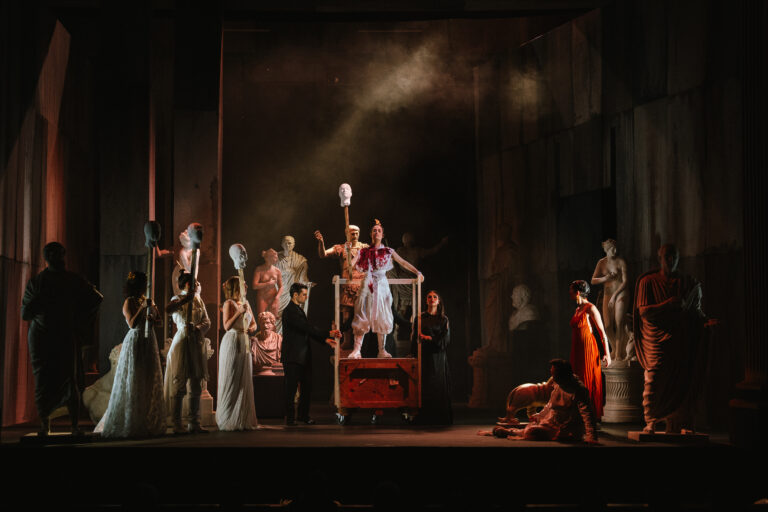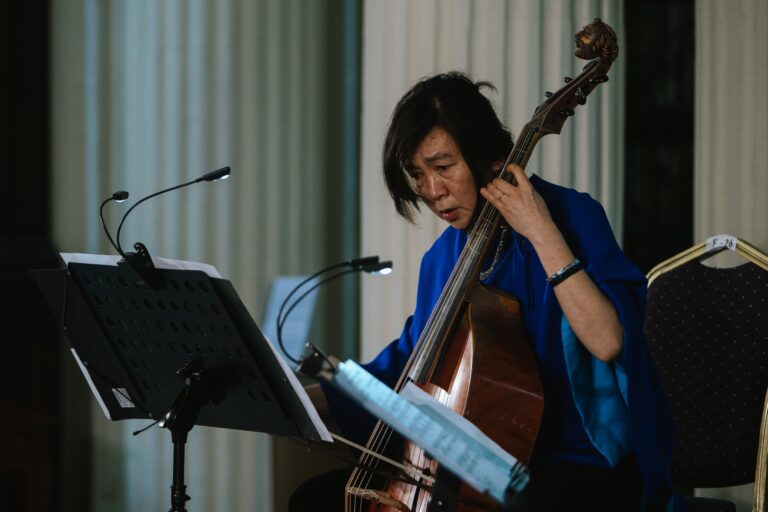Written and Directed by Emilie Blichfeldt
Watched on the 27th April, 2025
The Ugly Stepsister is the debut feature by Norwegian filmmaker Emilie Blichfeldt; a debut that has the assured singularity of vision that one might expect from a more seasoned filmmaker.
The concept is a simple one: Cinderella, but from the point of view of the ugly stepsister, Elvira, who puts herself through extreme physical torture in order to be chosen by her beloved prince. However, as much as it takes from the Brothers Grimm’s classic fairy tale, even in its period aesthetic, it is much more contemporary in its approach. In fact, the film has, understandably so, immediately led to comparisons to Coralie Fargeat’s 2024 hit, The Substance. Both films use body horror to explore the lengths women go to in order to achieve physical perfection, but while The Substance focuses on a character who longs for the beauty of her youth, here we follow a character who has her whole life ahead of her but has already been labelled as ugly, almost predestined to remain so forever.
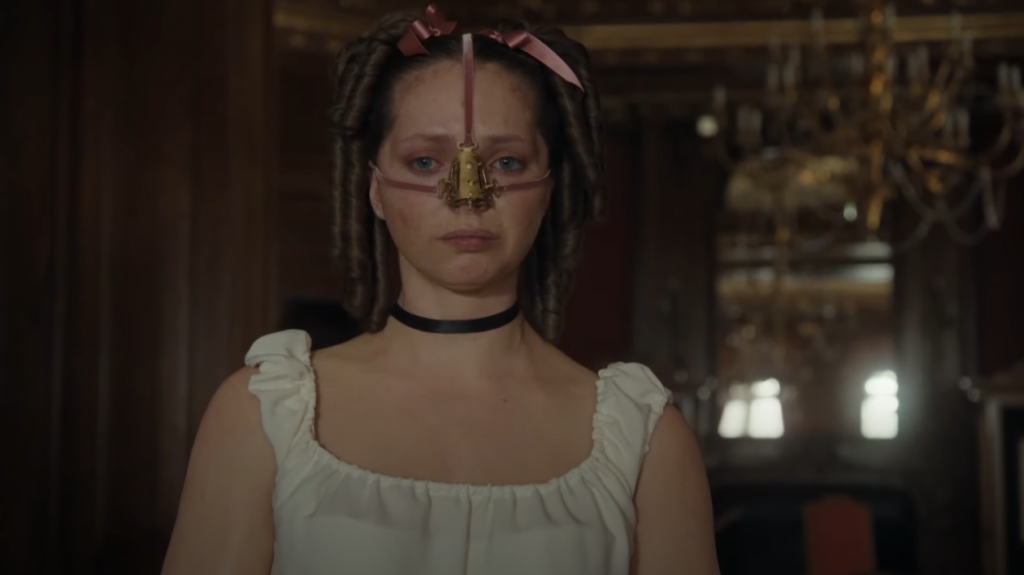
Elvira is played by Lea Myren, who gives a tour de force performance as a woman being torn up from the inside, both metaphorically but also literally, after she swallows a tapeworm. Stomach growling soon blends in with the propulsive synth score by John Erik Kaada, adding to Blichfeldt’s grotesque world. The film effectively creates a contrast between the brutality of the scenes of physical transformation and the jarring dream sequences where the virgin, pure Elvira, naively imagines her life with the prince. The imagined fairytale gives the film a strong satirical tone, aided by the humorous one-liners peppered throughout. This offers some relief from the darker surgical scenes – one involving sewing eyelashes into Elvira’s eyelids, which particularly evoked lots of squirming in the screening I attended. I personally watched this overbearingly long scene through my fingers, so I must warn you that this one is not for the faint-hearted.
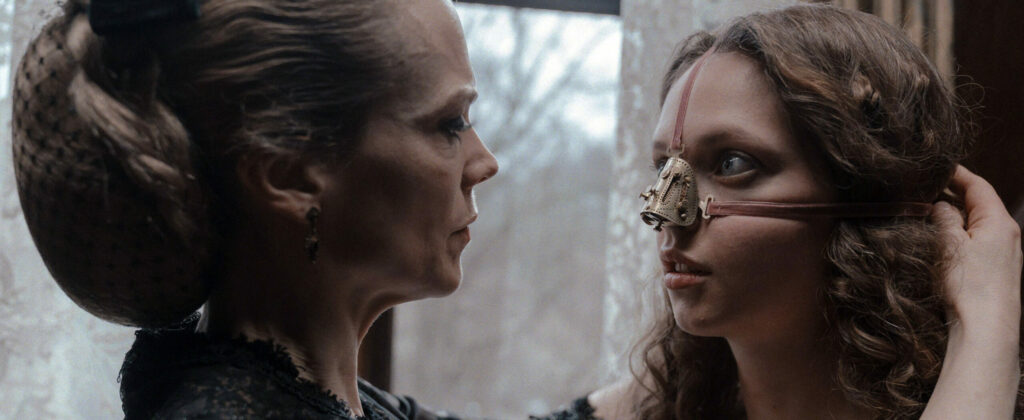
However, this never feels self-indulgent. Blichfeldt is making a strong point here, using the extremes of body horror to comment on the absurd daily rituals we undertake in order to conform. In our Ozempic, social media filtered, AI world, the message is not subtle but necessary: the more we twist, contort and mold ourselves in order to belong, the more lonely and isolated we will feel. Blichfeldt has cleverly identified that while Disney wanted us to relate to Cinderella, we are all actually much closer to the ugly stepsister, bleeding ourselves out to fit into a glass slipper. In the character of Alma, Elvira’s sister, we meet someone much more self-assured, who refuses to live by society’s rules. She realises very early on that her mother is a narcissist whom they must get away from in order to feel safe, clearly taking on the role of the black sheep of the family; the one often attributed to breaking generational curses.
Blichfeldt does not spend much time with her, or Cinderella for that matter, making the other characters in the film sometimes feel like devices, rather than fully fledged people in their own right – their importance to the ending of the film feels slightly rushed and unearned. The presence of a benevolent supernatural force in one particularly visually arresting scene feels like a necessity to move the story forward and a fitting nod to the original, but simultaneously is out of place in a film that has previously been so cruel to its characters.
These tiny flaws do not take away from its bold execution. Blichfeldt is one to watch, adding to the impressive number of debut filmmakers who have used horror to introduce themselves to the world – perhaps, it’s because there is no better genre to capture the present moment.
